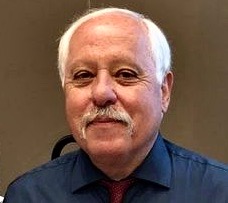Wearing various and sundry hats as a member of the Public
Relations Society of America, I traveled to San Francisco, "the City by the Bay," for the 2012 PRSA
International Conference on October 12-16.
It’s
always a challenge to keep my commitments at these conferences, from my roles as a leadership
assembly delegate for the PRSA Greater Oregon Chapter, to advisor
for the University of Oregon Chapter of the Public Relations Student Society of
America (PRSSA) and board member of the PRSA North Pacific District.
But that never stops me from trying. This time,
I had one more event to attend as a new inductee into the PRSA College of
Fellows.
Plus, it's always nice to take a little time to see the sights: Fisherman’s Wharf, Alcatraz, The Presidio, Golden Gate
Park, Cliff House and, of course, Chinatown and North Beach, where Jack Kerouac
and his beatnik buddies would hold court.
But
more on that later. Landing in SFO late morning on Friday, October 12, my first
order of business was to grab a shuttle downtown. At $17, fares are not cheap,
but it’s considerably less than a cab. Arrived at the Marriott Marquis and set
up my room in time to meet up with my peeps from UO PRSSA (below) for lunch.
Later that evening, I attended the reception for Leadership
Assembly delegates representing 110 PRSA chapters, 10 districts and 16 special
interest sections both nationally and internationally.
On Saturday, October 13, nearly 300 delegates participated
in PRSA’s 2012 Leadership Assembly. In year’s past, I would liken the assembly
to a frontier legislature, but this year was different. Instead of haggling
over by-laws, this year's Leadership Assembly (below) focused on finding ways to enhance benefits
for membership.
PRSA Chair and CEO Gerry Corbett, APR, Fellow PRSA, one of
our own from the PRSA North Pacific District, addressed the delegates on “PRSA
at work,” citing initiatives relating to advocacy, ethics, diversity and much
more. His parting message to PRSA practitioners was, paraphrasing Winston
Churchill, “act ethically and carry on.”
After assembly, it was time for the PRSA College of Fellows induction ceremony held in the historic Green Room of the San Francisco War Memorial and Performing Arts Center. The College of Fellows is a group of more than 300 senior practitioners who have distinguished themselves through their leadership and experience.
When friends ask me about the College of Fellows, I liken the experience to being elevated to the Jedi Council of public relations. Per longstanding
tradition, new fellows are escorted by a current fellow to
receive their honor; my official College of Fellows escort was 2002
PRSA Chair/CEO Joann Killeen (below).

On Sunday, the conference kicked off with the first of three
keynote speakers. PRSA has always impressed me with their ability to attract top-drawer
and nationally renowned “keynoters.” Over the years, I have seen James Carville
and Mary Maitlin, political strategists; Mitch Albom, sports columnist and
best-selling author; and Tim Russert, broadcast journalist and moderator of
NBC’s Meet The Press.
This
year was no different. Keynoters included Biz Stone, co-founder, Twitter; Tim
Westergren, founder and chief strategy officer, Pandora; and Michael Steele,
MSNBC political analyst and former chairman of the Republican National
Committee. The common thread? All three keynoters emphasized the continuing
importance of face-to-face communications despite all the new media.
“People are looking for humanity in the social media space,”
noted Westergren, (but) “there is no substitute for in-person conversations.
We never advertised Pandora -- it was all word of mouth.”
In discussing the presidential debates, Steele said, “it’s
the ultimate public relations campaign to say (what you believe) in your own
words and in person.” On the quality of communication, he noted “the power of
personality and the power of the individual to be his or her own public
relations machine is unmistakable.”
For
me, Stone was the most enlightening, and certainly the most entertaining, of the
three: “access to unlimited information is not necessarily going to make us
smarter or allow us to do anything more important. What we have to do is
understand that information.”
On Sunday, I was sorely tempted to skip the opening night
gala in an effort to see the San Francisco Giants play the St.
Louis Cardinals in the National League Championship Series at AT&T Park.
But I deferred and was rewarded for my patience: on Monday evening, I saw the
Giants beat the Cards, 7-1, to take a 2-0 lead in the series.
On Monday, I briefly saw the sights. Walked through Chinatown on my way to
North Beach for a visit to Vesuvio (above) and City Lights Bookstore (below), and climbed
Telegraph Hill for a view of San Francisco. The city originally was known
as “Yerba Buena,” or “good herb.” No, not that herb, but a local species of
mint.
All in all, a great trip to a great conference with great
people in a great city. As novelist William Saroyan, a native of Fresno, noted: “If you’re alive,
you can’t be bored in San Francisco. If you’re not alive, San Francisco will
bring you to life.”
Or, from novelist and poet Rudyard
Kipling: “San Francisco has only one drawback. It’s hard to leave.” Or this, from broadcast journalist Walter Cronkite: "Leaving San Francisco is like saying good-bye to an old sweetheart. You want to linger as long as possible."













